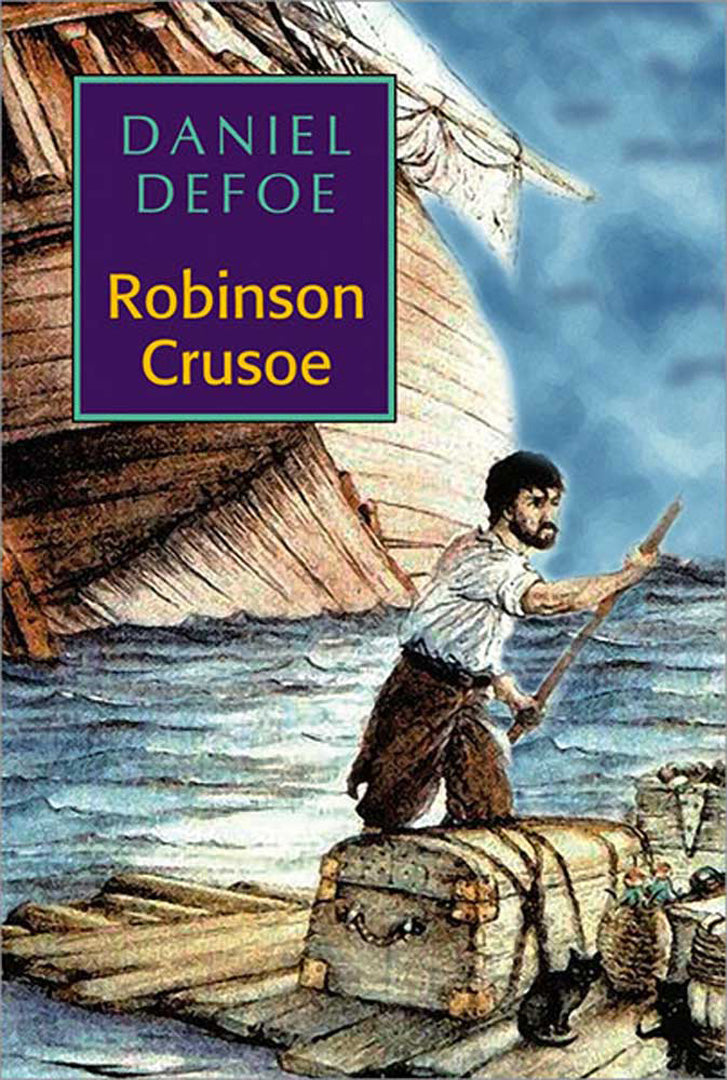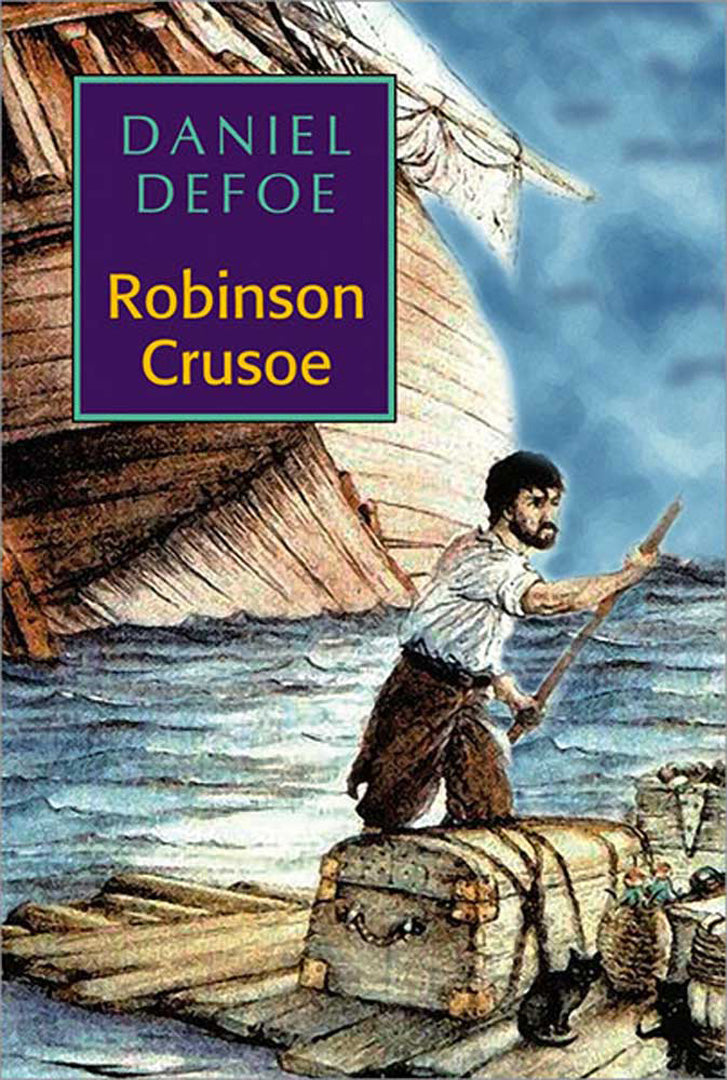Robinson Crusoe
Robinson Crusoe
Daniel Defoe
Couldn't load pickup availability
Share

More Information
- ISBN13:
- Publisher: Atlantic Publishers & Distributors (P) Ltd
- Publisher Imprint: Peacock Books
- Publication Date:
- Pages: 288
- Binding:
- Item Weight:
- Original Price:
About The Book
Published in 1719, Robinson Crusoe has remained one of the best-known and most read of English novels. It gained popularity among children and adults alike. The adventure story became one of the classics of English literature (like Gulliver’s Travels, perhaps, or Pilgrim’s Progress) and was translated into numerous languages.
Crusoe is a mariner who takes to sea in spite of parental warnings, suffers a number of misfortunes at the hands of Barbary pirates and the elements and is finally ship-wrecked on a desert island off South America. His crew dies and his location is unknown. He is without food, without shelter, without supplies and is never trained to live apart from the luxuries of civilization. He manages to exist on this island for more than twenty-eight years by a combination of systematic salvaging, resourcefulness and good fortune.
The novel embodies a vast and complex economic doctrine which Karl Marx, amongst many others, has thought worthy of serious scrutiny. It is, further, a work of considerable moral and religious significance; a fine tension is set up between God’s purpose and Crusoe’s very human impulses, which Daniel Defoe expresses with superbly vibrant, haunting realism.
About The Author
Daniel Defoe (1660-1731) was born in London in the year of the Restoration. His father, James Foe, was a butcher of Stoke Newington. Daniel changed his surname to the more fashionable Defoe in 1703, the year he began depending on writing for his living. He was educated at Stoke Newington Academy—a school for Dissenters. He went into trade and travelled extensively in Europe until his marriage in 1683 to Mary Tuffley, when he was a hosiery merchant in Cornhill. He participated in Monmouth’s rebellion in 1685, but later became a supporter of William III, joining his army in 1688.
Defoe’s first writing was on Economics (An Essay upon Projects, 1697) by which time he had gone bankrupt as a hosier. In 1700 he started up a tile factory in Tilbury. His first literary success was The True-Born Englishman (1701), a satiric poem championing the cause of the foreign-born monarch, but he subsequently wrote little satire. In 1702 appeared The Shortest Way with Dissenters, a notorious pamphlet in which Defoe, himself a Dissenter and therefore in favour of religious toleration, mimicked the extreme attitudes of High Anglican Tories and pretended to argue for the total and savage suppression of dissent. In the politically volatile atmosphere of the time the leaders of neither party were happy; Defoe was fined, imprisoned (May- Nov. 1703), and pilloried. While in prison he wrote his Hymn to the Pillory, a moc-Pindaric ode which was sold in the streets to sympathetic crowds. Meanwhile various business projects (the breeding of civet cats, marine insurance, a brick works) had come to grief, and his fortunes were revived by Harley, the Tory politician, who arranged a pardon and employed him as a secret agent; between 1703 and 1714 Defoe travelled around the country for Harley and Godolphin gathering information and testing the political climate. He wrote many pamphlets for Harley. In 1704 he brought out the first issue of The Review, a newspaper that continued to appear until 1713. He contributed to this newspaper thrice a week articles on a large variety of topics from the commercial to the moral.
Defoe changed his allegiance once again in 1712, when the Tories were ousted by the Whigs, and he entered the service of Godolphin. Irrespective of the changes in party policies, his own political beliefs remained unchanged; a committed anti-Jacobite, he published Reasons against the Succession of the House of Hanover (1712) a satirical piece that was again mistaken by the authorities. He was imprisoned for the treasonable publication, and The Review ceased publication. He now started a new trade journal Mercator, and in 1714 supported the concept of free trade in his A General History of Trade. In 1715 he was convicted of libelling Lord Annesley but escaped punishment through the intervention of Townshend, the Whig secretary of state.
Defoe was an extremely versatile and prolific writer, and produced some 560 books, pamphlets, and journals, many anonymously or pseudonymously. His best known works include Robinson Crusoe and Moll Flanders. He died on 26 April 1731 at his lodgings in Ropemakers’ Alley, Moorfields.
Defoe’s influence on the evolution of the English novel was enormous, and many consider him as the first true novelist. He was a master of plain prose and powerful narrative, with a journalistic curiosity and love of realistic detail. His fiction reveals love of travel, adventure and piracy which subsequently became the stock material of many books.

